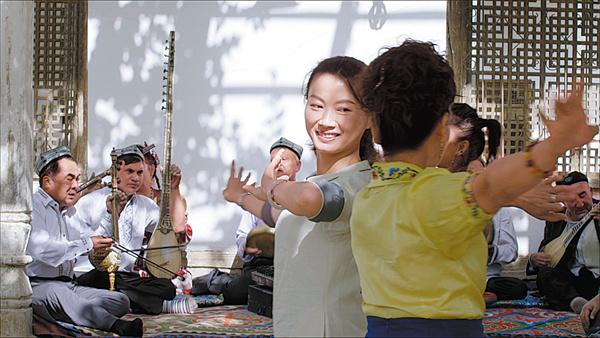

Apart from scholars who provide in-depth analyses of the poems from the perspectives of literature and history, and young students who learn Tang poetry in their compulsory courses, the documentary also tells stories of people from other walks of life and their personal, down-to-earth understanding of ancient poetry.
"We don't want the documentary to become a classroom on the road, lecturing about Tang poetry. I hope the audience can feel and comprehend poetry on the spot where it was written, see the scenery the poets saw and approach Tang poetry from an emotional standpoint," Li Wenju says.
"Tang poetry should not merely be literary works written on paper, or the possessions of scholars and experts, but something in the hearts of Chinese people and an ordinary part of their everyday lives."
In the mountain villages of Gansu province, Xi Chuan bumps into farmers who could recite Du's poems and elaborate on the specific locations Du wrote about. In Chengdu, Sichuan province, people frequent Du's thatched cottage as a pastime and a circle of literati, with a shared love for Du's poems, gather regularly to share their own works.